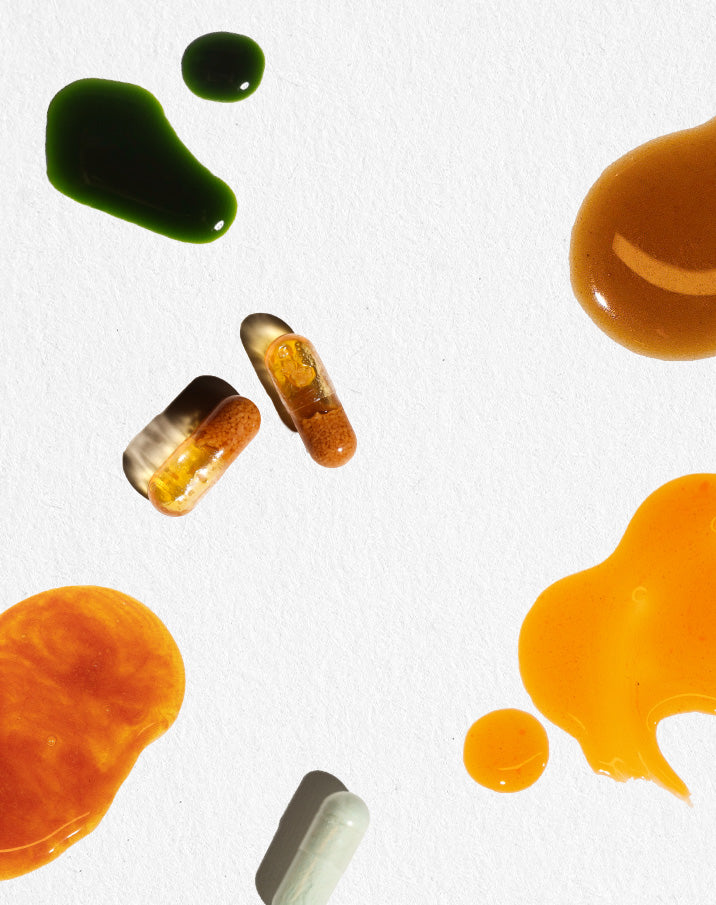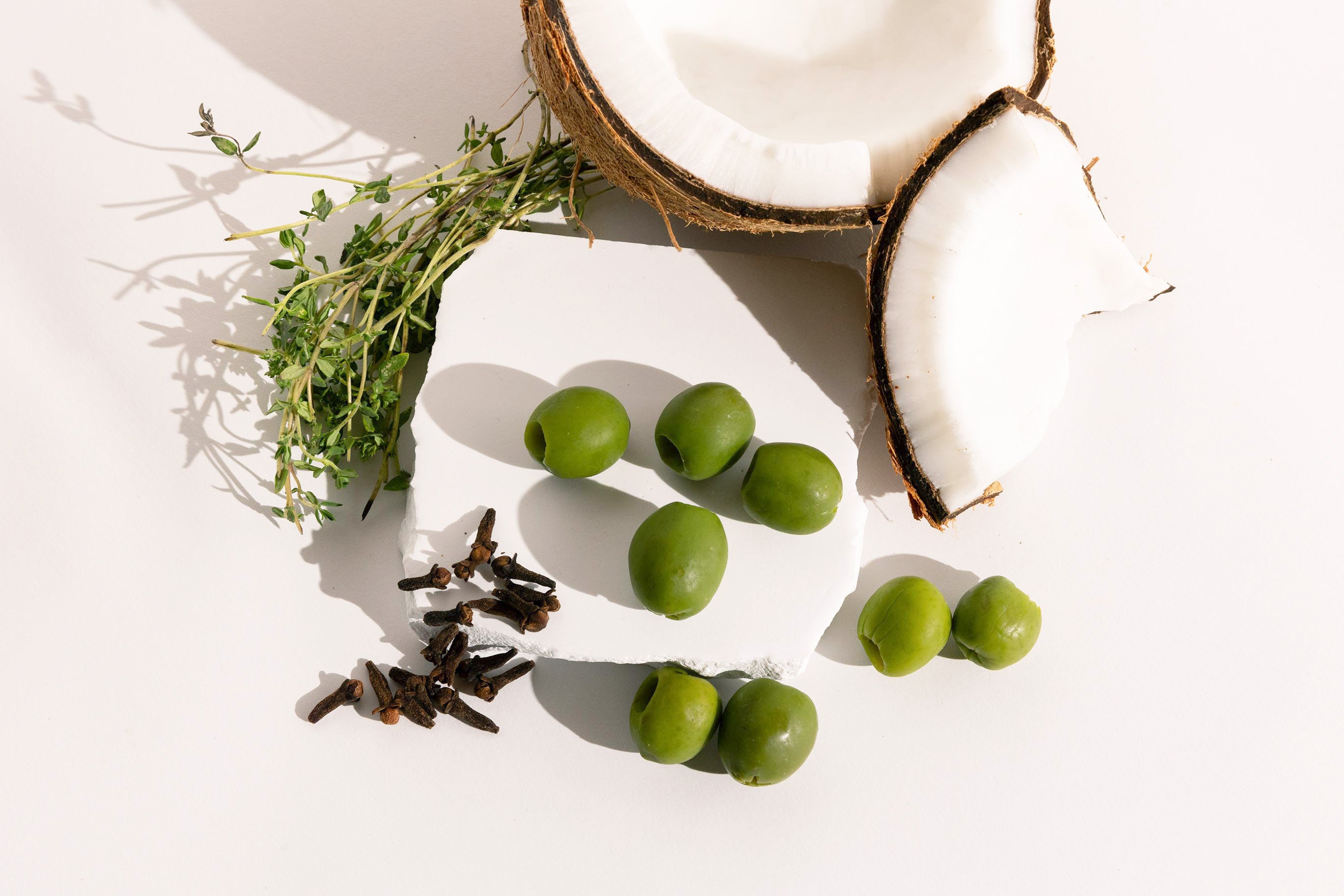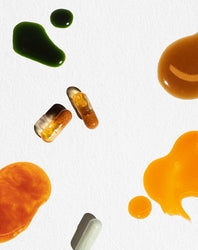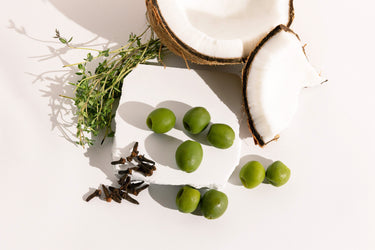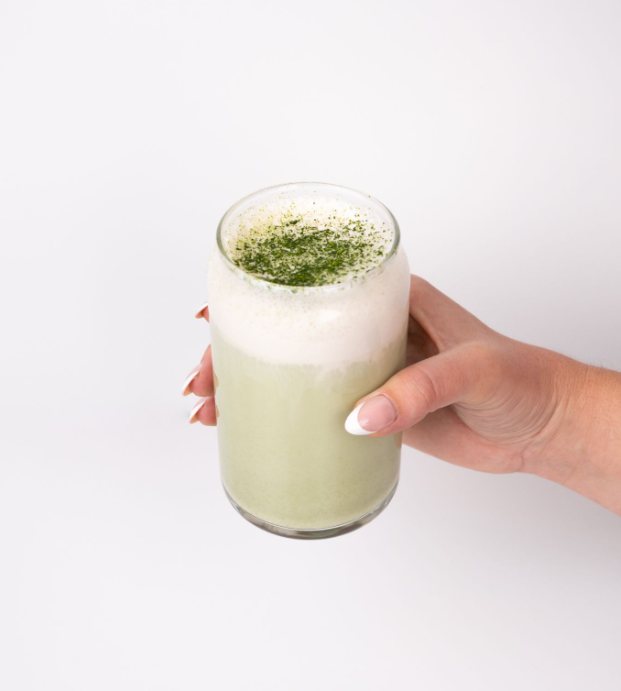
After a mouthwatering meal, you want to feel satisfied, nourished, and content—not uncomfortable and tense. But if you’ve ever found your stomach feeling too tight and bloated after eating, you might find it hard to focus on those feelings of satisfaction.
Instead, you look down at your empty plate and wonder, “Why does my stomach get bloated after I eat? Is it me or my food?”
Bloating is due to excess gas produced by your digestive system, and it can be a natural result of your body’s biological functions.1 But it can also signal that your gut needs additional support. To ensure you can enjoy every meal without bloating, it can help to learn why it happens and how to get rid of bloating naturally.
Where Bloating Begins
The symptoms of bloating usually present as feelings of tightness and pressure around your stomach and gut area.1 This sensation might be mildly uncomfortable, but in more severe cases, it could even feel painful. While it isn’t always the case, you might also see some physical signs of bloating, too—like a stomach that appears and feels “puffy” or feels a little too tight against your waistband.
So, what’s the cause of this feeling?
Bloating is typically the result of excess gas that builds up in your intestines after you eat.1 It’s normal for your body to produce some gas as a part of the digestion process. After you eat, the bacteria in your gut digest and ferment foods to break them down, allowing them to be absorbed or discarded by your body.1
As your gut bacteria digest the foods you ate, they also produce that gas as a natural byproduct of the fermentation process. But if they produce too much of it, it could lead to that uncomfortable experience known as bloating.1
What Causes Excess Gas in Your Gut?
There are several reasons why your body might produce too much gas during digestion. Sometimes, it can be linked to other health conditions—but other times, it can relate directly to the foods you eat and how your body reacts to them.1
Here are a few common reasons why you might experience stomach bloating after eating:
How Do I Know If My Gut Microbiome Is Off-Balance?
Determining the cause of your bloated stomach can take some guesswork, but you can get closer to the answer by evaluating what else happens when you eat. If your bloating is accompanied by other digestive symptoms, such as constipation, heartburn, or nausea, a digestive disorder might be the cause.
Likewise, if you only experience bloating when you eat specific foods, you might have a food intolerance.
But how do you know if a gut imbalance is causing your bloating?
Because your gut health can affect your overall health, you can look for clues in the rest of your body, too. Some other symptoms of a gut microbiome imbalance can include:2
- Difficulty sleeping
- Constant feelings of fatigue
- Skin issues and irritations like psoriasis, eczema, and acne
- Unexpectedly gaining or losing weight
- Intense cravings for high-sugar foods
As you can see, what affects your gut can affect the rest of your body from nearly head to toe. Fortunately, there are steps you can take to return your gut to prime condition and fight bloating at the same time.
How to Get Rid of Bloating Naturally
To put an end to bloating, it’s important to focus on the root cause. You can test out each of these methods to determine which is right for you or work together with a healthcare provider to find out if another underlying issue, like IBS, might be contributing to your bloating.
#1 Feed Your Gut
Your body is home to a whole host of microorganisms—trillions, in fact—that play a part in your internal processes.3 Most of these microorganisms are found in your intestines, where they help your body produce and absorb key vitamins and minerals, keep your immune system functioning, and help to break down the foods you eat.
For various reasons, however, the balance of these microorganisms can be thrown off—meaning you’ll have too much of one kind and not enough of another. There are several ways you can help your body to restore a healthy balance, but one key way involves supplements that give your gut what it needs. Some options include:
#2 Avoid Foods That Cause Bloating
Although keeping your gut healthy should be top of your list, you might also benefit from finding out if certain foods are causing your stomach to bloat.
There are many foods that can contribute to excess gas in the digestive system, but some common plant-based culprits include:7
- Lentils
- Beans
- Wheat
- Barley
- Rye
- Onions
- Cabbage
- Broccoli
- Cauliflower
- Carbonated drinks
- Artificial sweeteners
- Chewing gum
Sometimes, the method of preparation can make it harder for your body to absorb and digest these foods. For example, eating lots of raw broccoli or cabbage might give your digestive system some distress, while cooked versions of the same foods may not.7 In these cases, you may benefit from trying different ways to prepare such foods.
However, if you think you have a true food intolerance, it might be worth consulting with a healthcare professional.7 An example is lactose intolerance. Some of the symptoms of lactose intolerance include diarrhea and bloating after consuming dairy products.
#3 Keep Your Digestive System On Track
If you’re looking to banish bloating, it’s also important to ensure your digestive system is functioning properly—meaning your bowel movements are regular and you’re not also experiencing constipation. A few daily habits can help with this, including:
- Supplementing with magnesium – Magnesium supplements may help to keep your digestive system functioning properly, and they may help to relieve symptoms of bloating, too.1
- Eating plenty of fiber – Fiber is also important for digestive health and can be a key element in keeping you regular.1 You can increase your fiber intake through the foods you eat or by adding a fiber supplement to your diet.
- Exercising regularly – The movement you gain through exercise can help to keep your body’s processes functioning properly—especially your digestive system.1
#4 Eat More Mindfully
If you find yourself gulping down foods quickly, rushing through lunch, or constantly interrupting meals with conversation, one simple solution to bloating may be to focus on your food.
This positive habit is known as mindful eating.1
Mindful eating can help to ensure you chew and swallow your food slowly, making it easier for your body to digest by the time it reaches your stomach and then gut.1 But research has demonstrated that the connection between mindful eating and healthy digestion may be more than just how you chew.
One study suggests that slowing down and focusing on your foods while eating may help to regulate your nervous system, helping your body to enter into “rest and digest” mode sooner after eating.8 Effectively, slowing down when you eat could naturally help to signal to your brain that it’s time to digest—ensuring that the right message reaches your gut at the right time.
Seek Whole-Body Nourishment with Cymbiotika
Understanding the cause of any discomfort can set you on the path to finding solutions that work for you. When it comes to bloating, finding that solution means you’ll be able to eat well and feel well every day.
At Cymbiotika, we believe that food can be just as good as medicine—but we also know that sometimes you need support to find the right nutrients. Our Liposomal Glutathione supplement may help to enhance gut health and promote energy cell metabolism, giving your body just what it needs to feel good.
In addition, our range of healthy gut supplements can help you put your digestive system on the right track—so that the next time you sit down to an amazing meal, all you need to worry about is which dish you’ll try first.
Find health that works for you with Cymbiotika.
Sources:
- Cleveland Clinic. Bloated Stomach. https://my.clevelandclinic.org/health/symptoms/21740-bloated-stomach
- Frederick Health. 10 Signs of an Unhealthy Gut. https://www.frederickhealth.org/news/2021/july/10-signs-of-an-unhealthy-gut/
- Harvard School of Public Health. The Microbiome. https://www.hsph.harvard.edu/nutritionsource/microbiome/
- Molecular Systems Biology. The gut microbiota modulates host amino acid and glutathione metabolism in mice. https://www.embopress.org/doi/full/10.15252/msb.20156487
- Molecules. Probiotics Regulate Gut Microbiota: An Effective Method to Improve Immunity. https://www.ncbi.nlm.nih.gov/pmc/articles/PMC8512487/
- Scientific Reports. The potential role of vitamin D supplementation as a gut microbiota modifier in healthy individuals. https://www.nature.com/articles/s41598-020-77806-4
- Cleveland Clinic. 15 Foods That Can Cause Bloating. https://health.clevelandclinic.org/foods-that-cause-bloating/
- Integrative Medicine. Mindful Eating: A Review Of How The Stress-Digestion-Mindfulness Triad May Modulate And Improve Gastrointestinal And Digestive Function. https://www.ncbi.nlm.nih.gov/pmc/articles/PMC7219460/
